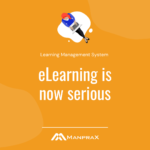
E-Learning is the future. Market research firm Global Industry Analysts projected “E Learning” would reach $107 Billion in 2015 and it did. Now, Research and Markets forecasts show triple the revenue of 2015 – e-learning will grow to $325 Billion by 2025.
Learning has changed overnight. COVID-19 has made everyone an e-learner. Teachers, students, and even parents are learning and working online every day. E-learning itself is nothing new. It’s a successful and rapidly growing market, forecast (before the COVID-19 pandemic hit) to grow to $300 billion by 2025. But its mainstay is adult education, corporate training, and specialty courses — not primary and secondary education.
Education at scale
Students and parents will increasingly access alternative or improved content and teaching from outside their specific school. No longer do students have to be limited by that teacher they don’t get along with. And given that e-learning supports cheap, bite-sized, and sometimes free learning — this could mean that many students get a better quality of education. Or at least one more suited to their learning style.
E-learning can provide a better quality of education at an affordable price
AI Support
AI builds a learning profile through machine learning that automatically reviews students’ submissions, interactions, and performances. It can recommend specific learning content or pathways for individual students. This helps students fill in knowledge gaps that teachers might miss on their own. Each student’s learning plan can be tailored to his or her learning style, which can help the student learn at a faster pace.
A plan tailored to a student’s learning style can increase learning speed
Offline v/s Online – or go Hybrid?
In this new world, private schools, colleges, and universities will have to prove why students should keep paying more to attend a physical school rather than the online version.
Harvard Business School is one example of the increasing respect given to online degrees. In January 2019, Harvard Business School changed the name of its online learning platform from HBX to Harvard Business School Online. The name change shows just how respected online education is now. The argument can be made that not having an online degree could hurt a school’s reputation — making them look as though they’re not actively engaged in the online learning space.
Education Institutes should move towards becoming live, more dynamic enterprises. They need to re-invent consumption
Major Learning Management Systems




